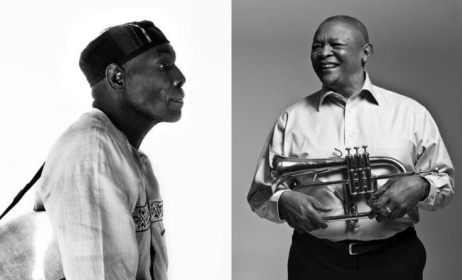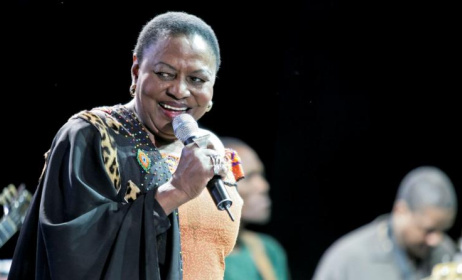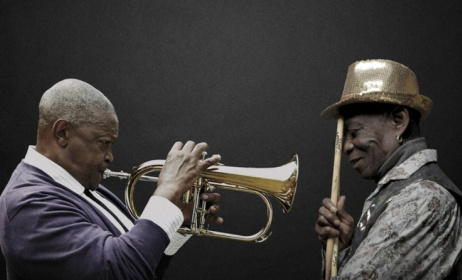On the centrality of jazz in Africa
The centrality of jazz in Africa cannot be understated. It is a genre that has over the years inspired and challenged as it grows to levels no one ever imagined. Jazz has shaped not only the social and cultural contexts of Africa but also the political movements that shaped our continent.
 Miriam Makeba was a powerful voice of the apartheid struggle.
Miriam Makeba was a powerful voice of the apartheid struggle.
Last month, the world celebrated International Jazz Day. It is declared by UNESCO as a day to highlight jazz and its diplomatic role of uniting people around the world.
Over the years, music, and especially jazz, has been the cornerstone of narrating our stories. The legendary Louis Armstrong captivated the world with 'What a Wonderful World'. A founding father of jazz, we should give him credit for imagining a peaceful world where everyone and everything lives in harmony with itself and each other. It is a world full of contrasts, yet it does not tear apart. Armstrong made a name for himself during the height of racial segregation and injustice in the US, and as would be expected of African Americans who occupied public spaces, he became a spokesperson for his race.
What strikes me is that during his time it was hard for blacks to be accepted by whites, let alone be heard. Yet Armstrong broke this barrier and was accepted not only as a performer but also as a spokesperson – though he rarely spoke. But when he did, it made the news. Armstrong’s imagination of a wonderful world seems to have been passed on to his peers and his contemporaries in equal measure.
The tradition of jazz on the African continent has been that of a musical genre that although mostly instrumental unites people and transcends boundaries in narrating what we would presume to be an African story. The music of the legendary Miriam Makeba and Hugh Masekela remain etched in historical time and space as music that weaved, and continues to weave, the intricate tapestry that is Africa. Like Armstrong, both Makeba and Masekela succeeded in creating an image of a wonderful Africa that although filled with contrast, at times teetering on the brink of falling apart, has strived to hold itself together.
The contributions of Makeba to African jazz have been subtle yet quite revolutionary. Her musical voice lulled and awakened in equal measure. On her terms, Makeba could be equated to political revolutionaries who led fronts to liberate their countries; she led her front through jazz and gave voice and inspiration to these movements.
If the movements were wheels, Makeba's music was the grease that kept them turning. It is her voice that gave meaning to 'a luta continua' (the struggle continues). We cannot ignore the contributions of our Mama Afrika as we have conversations around jazz. She gracefully bore the brunt of apartheid, just as Armstrong bore the brunt of segregation, and boldly told the African story.
Though resting with our ancestors, her music lives on, and hopefully it continues to inspire movements not only in Africa but also elsewhere in the world. Some of us may not have been alive to witness the victories that she and others fought for, but her music still inspires us to yearn for more and better. Makeba embodied our story – the African story – and rightly so. “She was South Africa’s first lady of song and so richly deserved the title of Mama Afrika,” Nelson Mandela said when he eulogised her.
Africa primarily finds its history intertwined with its colonial past, a history of oppressors and diluted identities. Even so, Africa, through its legendary jazz musicians, has told its story to the world and continues to do so as we fight the battle to right the wrongs of the past.
Just like Makeba and Armstrong, Masekela also rests and lives among the greats who highlighted the African story as it deserved to be, in spite of the challenges and struggles they found themselves living in. Masekela, who was once married to Makeba, lived through the apartheid struggle and his personal battle against alcoholism to tell his account of what Africa meant to him – an account that resonates with many Africans. It is an account of hopefulness and helpfulness that has been detailed in his song ‘Thuma Mina’ in which he wants "to be there when the people turn it around, when they triumph over poverty. I want to be there when the people win the battle against AIDS. I want to lend a hand.”
Masekela in this song embodies the (South) African spirit of ubuntu, elsewhere known as ujamaa. It is the spirit that has for long now carried the African through many violent storms. A spirit that despite being threatened with evils such as xenophobia and greed still believes and hopes for a better Africa for its descendants. It is a spirit that refuses to give up on another.
Sam Dennis Otieno is a cultural researcher at the University of Nairobi.


































Comments
Log in or register to post comments